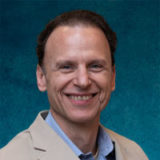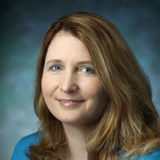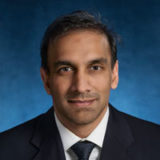
History
In 1916, the first formal Department of Immunology in the United States of America was founded at Johns Hopkins University. This rich heritage of Immunology was initiated by Dr. William Henry Welch who launched his vision of an Immunology department with an emphasis on research and teaching that soon spread to a variety of diverse programs at Johns Hopkins. Today, these programs have expanded into centers focusing on basic immunology, translational research and direct applications to patient management.
The Immunology Lab
The Immunology Laboratory is the clinical component of the Immunology Division. The laboratory performs and offers expert interpretation on a broad array of laboratory tests and comprehensive consultation in clinical and diagnostic immunology. In addition, the laboratory is involved in research and the development of diagnostic tests for a wide range of immune-based disorders. Approximately 300,000 tests are performed each year for the evaluation of autoantibodies, protein abnormalities and antibody responses to selected microbial agents. The Laboratory is managed by Annie Kuh and a staff of 16 highly skilled medical laboratory professionals.
In 2016, Dr. Patrizio (Mario) Caturegli became the director of the Immunology Laboratory taking over from Dr. Barbara Detrick who led the laboratory from 1999-2016. Today, the Immunology Laboratory continues to grow and provide a wide variety of services in immunologic testing. The evaluation of monoclonal proteins is a basic component of the laboratory analysis for multiple myeloma and other plasma cell dyscrasias. Consultation is provided by an expert group of faculty.
Another component of the laboratory is autoimmune disease testing. This section monitors autoantibodies that are generated in a variety of diseases such as, systemic lupus erythematosus, Sjögren's Syndrome, rheumatoid arthritis, myositis and celiac disease. The laboratory is also dedicated to infectious disease serology. A broad spectrum of infectious disease serology is offered, ranging from Lyme disease to syphilis. A change was initiated in syphilis testing with the advent of the reverse sequence algorithm, approved by the CDC for syphilis testing. Initial screening is performed by chemiluminenscence (CIA), followed by the traditional RPR test, and confirmed with the Treponemal pallidum particle agglutination assay.
In addition, the Immunology Laboratory is dedicated to the academic development of fellows, residents, medical students, graduate students, and medical technologists. Pathology residents rotate for two months through all areas of the Immunology Laboratory.
Key Faculty
Laboratory Tests
Hours: Monday - Friday, 7 am to 5 pm, Meyer B120 (Limited Syphilis coverage on Saturdays and Sundays)
Contact: Phone: 410.955.6570 (7am-4pm) | Fax: 410.614.7314
Resident: Phone: 410.955.2737 | Pager: 410.283.3406
Specimen Requirements
- Cryoglobulin specimens require special handling. Samples are collected in red top tubes and must be kept at 37degrees Celsius from collection through transport to the laboratory.
- CSF samples should be collected in sterile screw-capped tubes.
- Serum samples should be collected in serum separator tubes.
- Urine samples should be collected in urine containers without preservatives or other additives.
Educational Programs
Pathology Residents
Clinical Pathology residents have a two-month rotation in the Immunology Laboratory. During this time, they will gain both a practical and theoretical knowledge of the performance and the interpretation of the various immunologic tests offered in this laboratory, which involves cases relating to monoclonal gammopathies, autoimmune conditions and the serological aspect of infectious disease states.
Allied Health Program
Medical Technology and Medical Laboratory Technician students in these undergraduate programs become familiar with testing methodologies performed in the Immunology Laboratory. We currently host students from the University of Maryland, the University of Delaware, Andrews University, Stevenson University, Morgan State University, and Community College of Baltimore County.
Middle & High School Outreach
A unique outgrowth of the Allied Health Program is the outreach to area middle and high schools. Staff from the Immunology laboratory, as well as other Johns Hopkins Hospital laboratories, participate in programs to promote interest in the sciences at Paul Laurence Dunbar Middle & Senior High Schools.
Specialized Rotations
Other rotations and/or laboratory observations are specifically tailored to meet the needs of Fellows, medical and laboratory students and visiting scientists and guests from all over the globe.
Immunology Faculty and staff participate in the following additional education endeavors
- Autoimmunity Day: a full day activity in which Johns Hopkins faculty and invited guests update their colleagues on their latest research findings.
- Immunology Teaching-two-week period of Immunology Lectures (an Immunology Section for second year medical students)
- Graduate Immunology - PhD graduate students in the Pathobiology program, which includes clinical laboratory rotations tailored to the students' interests
- Selected courses in Graduate Immunology in the Bloomberg School of Public Health



